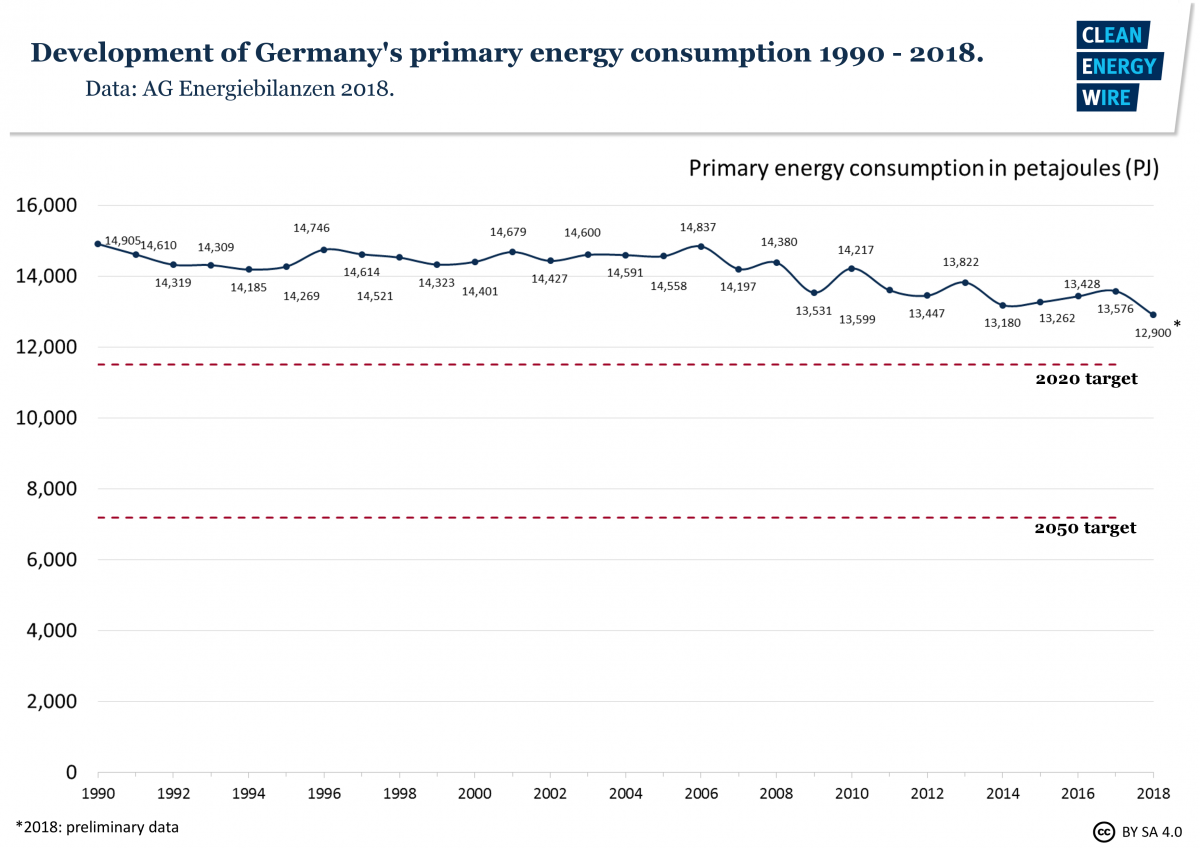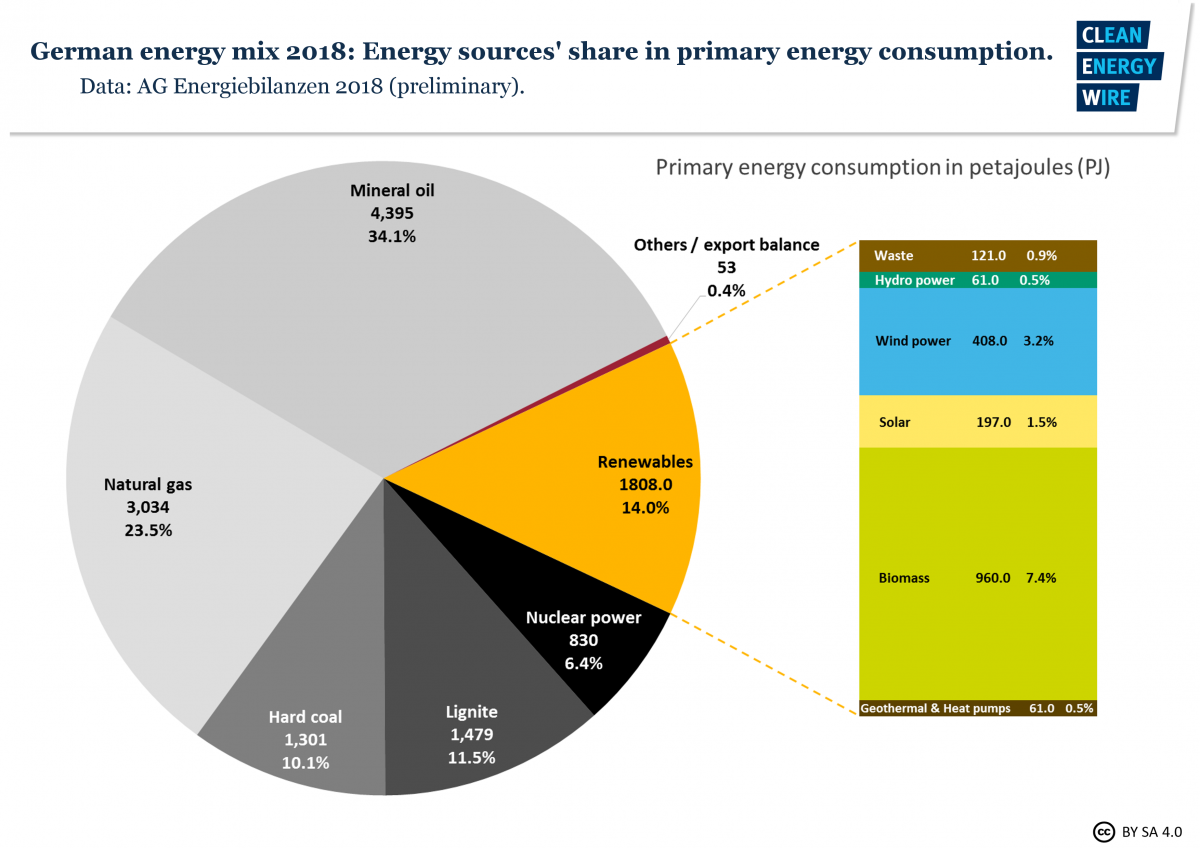Significant drop in energy use pushes down German emissions in 2018
Preliminary data by AGEB shows that the share of renewables in Germany’s energy consumption increased to 14 percent in 2018. Because the consumption of all fossil sources decreased at the same time, the energy market research group expects that energy-related CO₂ emissions will have decreased by more than six percent, AGEB writes in a press release.
This largely confirms the group’s estimates from earlier this year [Also read the story Germany headed for largest emissions drop since 2009 recession]. Energy-related CO₂ emissions represent about 80 percent of Germany’s total greenhouse gas emissions. The Federal Environment Agency (UBA) is set to release the first official 2018 estimates for total German emissions in March 2019.
The country of the Energiewende - Germany's dual shift from nuclear and fossil fuels to renewable energy sources – has rapidly increased its share of renewable energies, but emissions have remained stubbornly high mainly due to the continued use of coal power, currently the country’s single largest source of greenhouse gas emissions.
An increase in power production from renewables and higher prices for European Union Emissions Trading System (ETS) allowances pushed hard coal use in 2018 down by 11.2 percent, compared to last year. Lignite use decreased for the 6th year in a row, by 1.9 percent in 2018, writes AGEB.
Emissions from the power sector fell by 11 million tonnes in 2018 - BDEW
Renewable power sources contributed 35 percent (2017: 33%) to German electricity generation in 2018. The share of hard coal and lignite power production together was also at 35 percent, down from 37 percent in 2017, the German Association of Energy and Water Industries (BDEW) said in its own data publication today. Both the share of natural gas and nuclear power remained at last year’s levels of 13 and 12 percent respectively.
The BDEW calculates that the energy sector thus emitted 11 million tonnes of CO2 less than in 2017. “With this the energy sector stays on track to reducing greenhouse gas emissions by 40 percent by 2020 – unlike other sectors,” chairman of the executive board Stefan Kapferer said in a press release.
Germany’s total energy consumption of 12,900 petajoules in 2018 (-5 percent) still depended almost 60 percent on oil and gas, most of which has to be imported.




